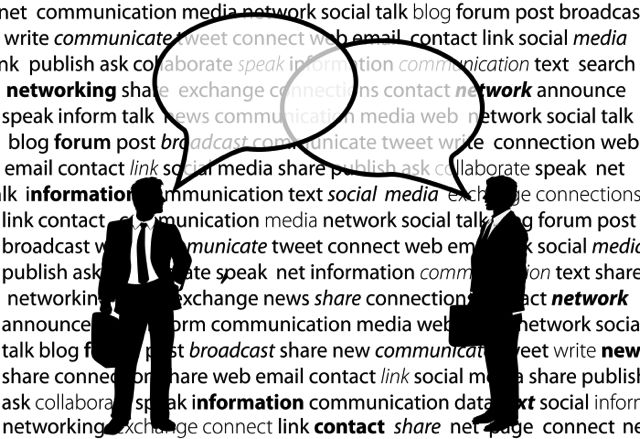How Good Are Your Communication
Skills?
“You're talking about a younger generation, Generation Y,
whose interpersonal communication skills are different from Generation X. The
younger generation is more comfortable saying something through a digital
mechanism than even face to face.” -Erik Qualman
Communication
skills are some of the most important skills that you need to succeed in the
workplace.
Effective
communication helps us better understand a person or situation and enables us
to resolve differences, build trust and respect, and create environments where
creative ideas, problem solving, affection, and caring can flourish. As simple
as communication seems, much of what we try to communicate to others—and what
others try to communicate to us—gets misunderstood, which can cause conflict
and frustration in personal and professional relationships. By learning these
effective communication skills, you can better connect with your spouse, kids,
friends, and coworkers.
How Good Are Your Communication
Skills?
-Speaking, Listening, Writing, and
Reading Effectively
“You're talking about a younger generation, Generation Y,
whose interpersonal communication skills are different from Generation X. The
younger generation is more comfortable saying something through a digital
mechanism than even face to face.” -Erik Qualman
Communication
skills are some of the most important skills that you need to succeed in the
workplace.
Effective
communication helps us better understand a person or situation and enables us
to resolve differences, build trust and respect, and create environments where
creative ideas, problem solving, affection, and caring can flourish. As simple
as communication seems, much of what we try to communicate to others—and what
others try to communicate to us—gets misunderstood, which can cause conflict
and frustration in personal and professional relationships. By learning these
effective communication skills, you can better connect with your spouse, kids,
friends, and coworkers.
We
talk to people face to face, and we listen when people talk to us. We write
emails and reports, and we read the documents that are sent to us.
Communication, therefore, is a process that involves at least two people – a
sender and a receiver. For it to be successful, the receiver must understand
the message in the way that the sender intended.
This
sounds quite simple. But have you ever been in a situation where this hasn't
happened? Misunderstanding and confusion often occur, and they can cause
enormous problems.
If you
want to be an expert communicator, you need to be effective at all points in
the communication process – and you must be comfortable with the different
channels of communication. When you communicate well, you can be very
successful. On the other hand, poor communicators struggle to develop their
careers beyond a certain point.
What
is effective communication?
In the information age, we have to send, receive, and process
huge numbers of messages every day. But effective communication is about more
than just exchanging information; it's also about understanding the emotion
behind the information. Effective communication can improve relationships at
home, work, and in social situations by deepening your connections to others
and improving teamwork, decision-making, and problem solving. It enables you to
communicate even negative or difficult messages without creating conflict or
destroying trust. Effective communication combines a set of skills including
nonverbal communication, attentive listening, the ability to manage stress in
the moment, and the capacity to recognize and understand your own emotions and
those of the person you’re communicating with.
Thanking You
Kamlesh Joshi
In the information age, we have to send, receive, and process
huge numbers of messages every day. But effective communication is about more
than just exchanging information; it's also about understanding the emotion
behind the information. Effective communication can improve relationships at
home, work, and in social situations by deepening your connections to others
and improving teamwork, decision-making, and problem solving. It enables you to
communicate even negative or difficult messages without creating conflict or
destroying trust. Effective communication combines a set of skills including
nonverbal communication, attentive listening, the ability to manage stress in
the moment, and the capacity to recognize and understand your own emotions and
those of the person you’re communicating with.
While effective communication is a learned skill, it is more
effective when it’s spontaneous rather than formulaic. A speech that is read,
for example, rarely has the same impact as a speech that’s delivered (or
appears to be delivered) spontaneously. Of course, it takes time and effort to
develop these skills and become an effective communicator. The more effort and
practice you put in, the more instinctive and spontaneous your communication
skills will become.
Thanking You
Kamlesh Joshi

Excellent Initiative for the students of Generation Y!
ReplyDeleteCommendable Job,Sir!
Thank You very much dear. . .
Delete